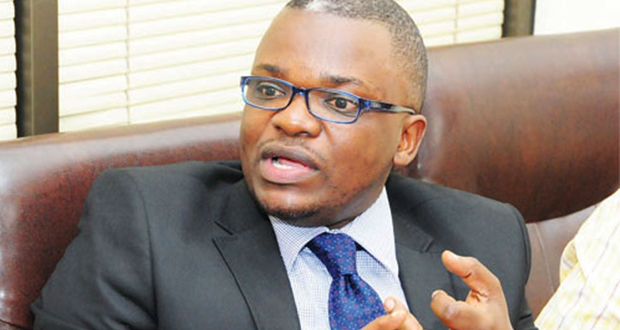By Fred Muwema
In criminal justice punishment theory, people are sentenced to serve time in confinement or prison to achieve the deterrence of a repetition of a crime, rehabilitation of the offender or retribution by way paying for the crime committed against society through jail time.
These are certainly beneficial tenets to the well-being of society and the reclamation of convicted criminals. I am not sure if our civil justice redress system is designed to achieve the same objective for a civil offender who is committed to civil prison for failure to pay a civil debt.
Uganda prisons sources indicate that by the end of last month, there were 340 civil prisoners in the 257 prison units across the country and this statistic is rising every year probably because of the growing poverty levels in the country. The recent jailing of NBS Simon Muyanga Lutaaya for a reported debt of costs arising from failed election petitions in the Jinja High Court and the Court of Appeal and a subsequent failure to honour Court Summons doesn’t tell the whole story. Many little unknown civil debtors are serving time in civil prisons silently.
This discussion will not claim to exhaust the merits or demerits of civil imprisonment in Uganda but it might provide a watershed moment for those seeking some level of direction to this topical subject.
From a historical perspective, the law which authorizes the Courts to imprison civil debtors in civil prison is the Civil Procedure Act Cap 71 (CPA) which was passed into law by the legislative Council (the Parliament then) and commenced on the 1st January, 1929. At that time, the Legislative Council was comprised of seven Europeans who included the Governor Sir Robert Coryndon and one Indian.
It was not until 1945 that the first indigenous Ugandans became part of the furniture of the legislative council before eventually dominating it and welding legislative power just before and after Uganda’s independence in 1962. It is not settled whether from inception, the CPA which gave birth to civil imprisonment was made to serve the needs and aspirations of the colonial masters or indigenous Ugandans.
Anyway, independent Uganda nevertheless maintained a legal regime of civil imprisonment of civil debtors, until it joined 170 other Countries in the world to condition this civil redress by adopting and ratifying the International Covenant on civil and political rights (ICCPR) which came into force on 23rd March, 1976 but was ratified by Uganda on the 21st June, 1995.
Article 11 of the ICCPR provides that no one shall be imprisoned merely on grounds of inability to fulfill contractual obligations which under widely accepted interpretation, includes civil debts. The ICCPR is part of the Ugandan law not only by virtue of the law of state responsibility for international treaties to which Uganda is a signatory but also by virtue of the Constitutional foreign policy objective which under state policy no. xviii and Article 287 of the Constitution, promotes the respect for international law and treaty obligation.
Since our Constitution is the Supreme law of the land, I believe the legal force of the Constitution together with its appendages in the form of international conventions or treaties is not lessened by the fact that Parliament has not yet enacted a specific legislation to domesticate the ICCPR and similarly, I also don’t believe that the Ugandan Courts are proscribed from giving effect to the binding provisions of the ICCPR.
Aside from the public international law cited above, civil imprisonment is just but one of the forms of execution of a Court decree to recover a judgment debt. The other forms of execution which in my view should be applied in preference to arrest and detention which should be a remedy of last resort are the attachment of the debtor’s property, enforcement of debt guarantor’s obligations to pay or appointment of a Receiver pursuant to Bankruptcy/insolvency proceedings to manage the debtor, his assets and receivables.
Under Order 37 Rule 2 (d) of the Civil Procedure Rules which are made under the CPA and reflect the attitude of Article 11 of the ICCPR, for the civil debtor to be subjected to civil imprisonment, the creditor must satisfy Court that the debtor is guilty of willful refusal or culpable neglect to pay the debt.
I find the law a bit fuzzy here because it expects a Court of law in execution proceedings to make a reasonable assessment of the civil debtor’s willful refusal or honest failure to pay a debt on the basis often of the oral allegations of the judgment creditor and the verbal pleas of the judgment debtor in a summary manner. In such a situation, it would have been necessary for the Court to conduct a mini trial within a trial and call for extrinsic factual or expert evidence to gain a reasonable appreciation of the truth or falsity of both the debtors and creditors claims.
I have seen that sometimes the Courts will get it right when they use their discretion or instinct accurately by detaining a civil debtor who has been feigning inability to pay only for the debtor to raise the money to pay the debt a few days into the civil imprisonment.
The disclaimer here is that if the civil debtor raises the money to pay the judgment debt through fundraising from well-wishers, it will be a sign that he didn’t have the ability to raise the money on his own and therefore the defence of inability to pay the debt would have been available to him in the first place.
So whereas the poverty or genuine inability to pay the debt is not a ground to land the civil debtor in civil prison, many debtors actually end up in prison for exactly the same reason. As a result, both the debtor and creditor are left in a dilemma because on the one hand, the debtor may be unlawfully denied of his personal liberty for a reason recognized by the law, whereas on the other hand, the interests of the creditor may not be served if the debtor doesn’t pay and regains his freedom after serving the mandatory 6 months in civil prison.
This dilemma is distilled by Justice G.B.M Kariuki of the Kenyan High Court, in Nairobi Divorce Cause No. 154 of 2008 R.P.M vs P.K.M (unreported) where he held that;
no one should be sent to civil jail for inability to pay a debt. It would be morally wrong to do so. It would arguably also amount to discrimination against the have nots. And it would also make no sense to send to civil jail a person who is unable to pay. That would be malicious. In any case, it would amount to throwing away good money after bad for the creditor. Civil jail is for those who refuse to part with their money to pay debts.
In conclusion, I would say that the civil debtors have an obligation to pay their debts and the creditors have a corresponding interest to recover their money. The law and practice relating to civil imprisonment needs to be robust, rigorous and clear to avoid abuse or mistake in applying this civil remedy by the Courts.
The observance of the civil liberties of a civil debtor which is guaranteed by the Constitution and the rights of a creditor to enjoy the fruits of a judgment which are equally guaranteed by the Constitution are two fundamental and important rights which cannot be left to chance and ambiguity. Without that, we may never know with judicious certainty, when to jail or not to jail a civil debtor.
Fred Muwema
Managing Partner
Muwema & Co. Advocates
4th May, 2018








Thankyou for the detailed information